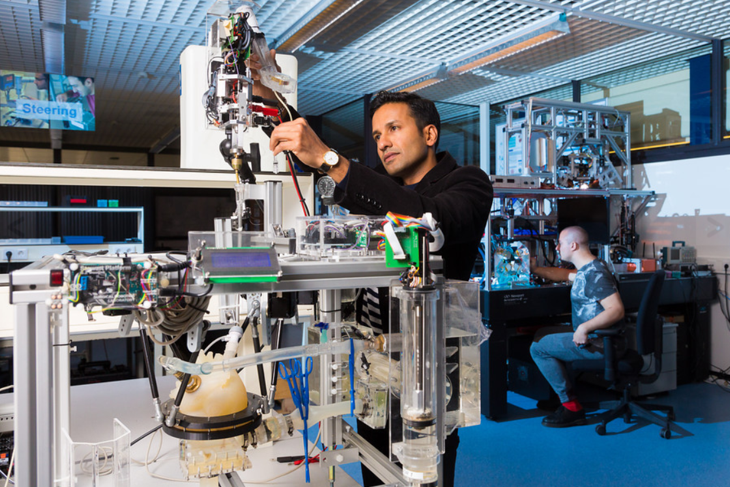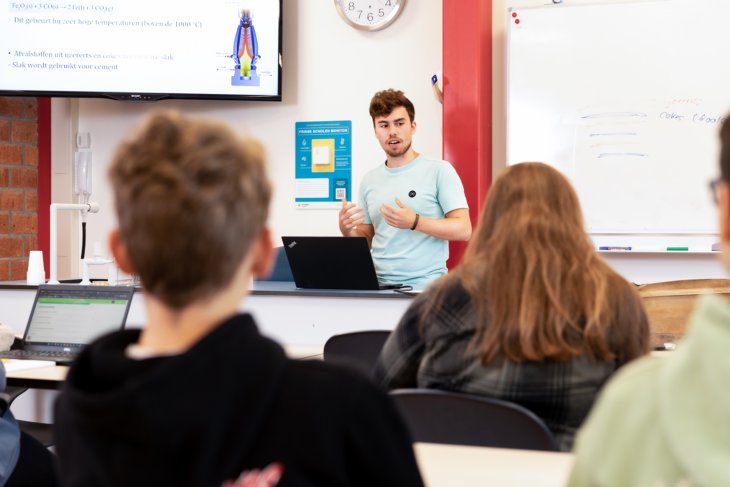1. Nanobot Engineer
A thousand times smaller than a hair: that's how minuscule the robots Nanobot Engineers are working on are. But however small, the impact of nanobots is going to be big! Consider, for instance, applications in the medical world: these mini-robots are expected to be able to fight diseases in the future - for instance, by attacking cancer cells in the human body. Needless to say, professionals with a background in nanotechnology are in high demand. Will you be the Nanobot Engineer who pioneers modern medicine?
2. Flying Car Developer
In the 1950s, people already fantasised about it: flying cars. Now, in the year 2024, this science fiction-like scenario does not seem so far away. The Dutch company Pal-V has been working on developing a commercial flying car that can also be taken to the highway for almost 15 years now. Soon, the first customers will receive the keys to their cars, but before we all fly to work every morning, there's still a lot to be done. Who knows, maybe you'll become the Flying Car Developer who will take daily transport to a higher (😉 ) level!
3. Data Trash Engineer
Although the term Data Trash Engineer may not be the most appealing, for today's big data fanatics, it's not a bad prospect at all! We're all creating more and more data together, which also creates more data waste - all the unusable or unused digital information that nevertheless remains stored. But sometimes this data contains hidden treasures: to the Data Trash Engineer, the noble task is to track down usable data and extract interesting insights. So, do you have an eye for detail, strong analytical skills and are you tech-savvy? Then in 15 years, you may be working as a Data Trash Engineer and turning trash into treasure!
4. Voice UX Designer
Er... what? Yes, a Voice User Experience (UX) Designer. We all know voice assistants like Siri, but these days we mostly use them for simple searches - or in the case of Alexa, as a private DJ. But in a few years, voice will probably be part of all kinds of apps and impossible to imagine our daily lives without. As a Voice UX Designer, you'll make sure you can actually have interesting and effective conversations with a voice assistant. Because no matter how high-tech our society is, nobody wants to feel like they are talking to a robot all day.
5. Haptic Interface Designer
Using an augmented reality (AR) app to try out different furniture in your room before you buy it? The Ikea Place app has allowed you to do this for years. But how nice would it be if, in the same way, you could feel the texture of that beautiful sofa from a distance? As a Haptic Interface Designer, you'll try to make exactly that happen, for example through a touchpad: a fine example of product design, marketing, material knowledge and psychology combined. Maybe in the future, you'll bring the real Ikea experience fully to people's homes!
6. Vertical Farm Consultant
How can we ensure food security in densely populated areas in the future? Perhaps through food flats: growing crops in multiple layers one above the other, for example in empty office buildings. In the Netherlands, this is still a niche, but ever since the idea was first introduced in 2001, a lot of research has been done. The concept still needs some time to grow – literally! – but who knows, maybe in 15 years this will be the standard way of growing food and you'll be the one advising future farmers on their vertical farms.




